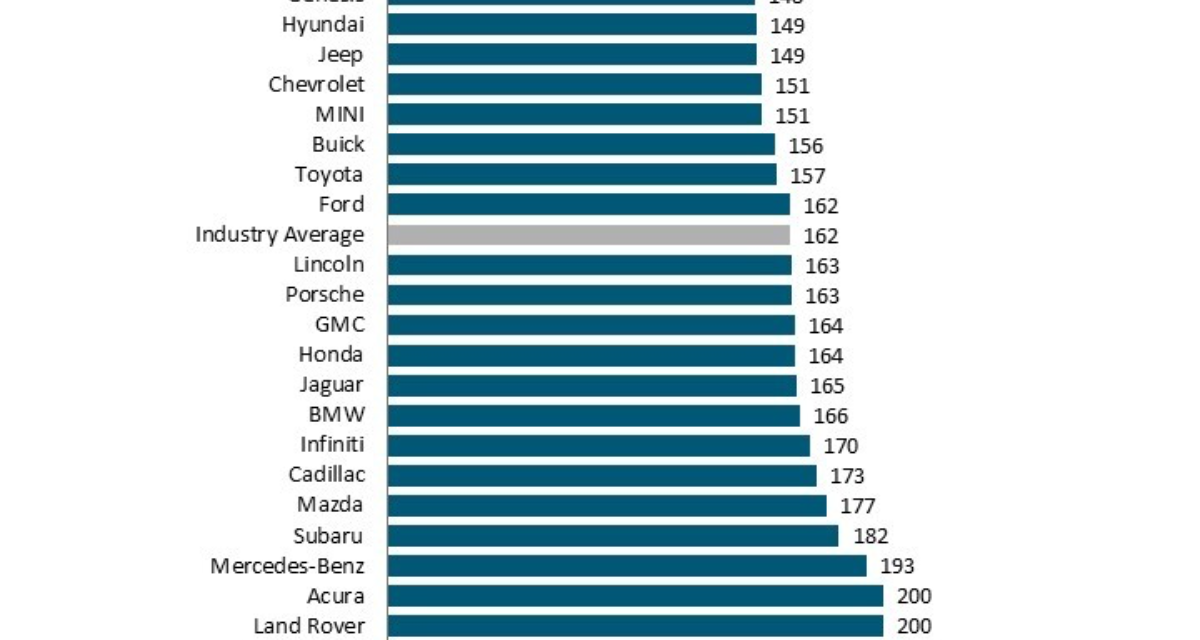New vehicle quality improves 2% from 2020, according to the J.D. Power 2021 U.S. Initial Quality Study (IQS). This is slightly lower than the average rate of improvement (3%) seen during the past decade.
Infotainment systems are the primary area preventing faster improvement, remaining the most problematic area for new-vehicle owners.
“Owners are caught in the middle when vehicle and phone technologies don’t properly connect,” said Dave Sargent, vice president of automotive quality at J.D. Power. “This year there are many examples of smartphone technology not working as intended in new vehicles. With more vehicles being fitted with the wireless technology owners want, the study reveals an increase in connectivity problems between smartphones and vehicles, leaving many owners unhappy.”
Initial quality is measured by the number of problems experienced per 100 vehicles (PP100) during the first 90 days of ownership, with a lower score reflecting higher quality. The industry average of 162 PP100 is 4 PP100 better than in 2020, with 20 of 32 brands improving their quality from 2020.
Following are key findings of the 2021 study:
- Infotainment remains most problematic category: One in four (25%) of all problems cited by new-vehicle owners are in the infotainment category, and six of the top 10 problems across the industry are infotainment-related.
- Smartphone connection is top problem: For the first time since 2011, voice recognition is not the top problem cited by new-vehicle owners. The top complaint this year is Android Auto/Apple CarPlay connectivity, which worsens significantly. This is a particular problem when these systems are operated wirelessly, which is increasingly common. “Owners want wireless connectivity, and the industry has responded,” Sargent said. “However, this has created a bigger technical challenge for both automakers and tech companies. Automakers generally are the ones facing the wrath of owners, but this is definitely a shared problem. Owners don’t care who’s at fault—they just want their phone and their vehicle to talk to each other.”
- Mass market brands continue to outperform premium brands: For the past six years, owners of mass market vehicles have cited fewer problems, on average, than owners of premium vehicles. Premium brands generally equip their vehicles with more and more complex technology, which can cause problems for some owners. Lexus (144 PP100) and Genesis (148 PP100) are the only premium brands that perform better than the industry average.
- Nissan Maxima achieves highest score of any model: The Nissan Maxima, with just 85 PP100, has the best score of any model in this year’s study.
- Tesla’s unofficial score improves from 2020: Tesla receives an initial quality score of 231 PP100, an improvement of 19 PP100 from 2020. The automaker is not officially ranked among other brands in the study as it doesn’t meet ranking criteria. Unlike other manufacturers, Tesla doesn’t grant J.D. Power permission to survey its owners in 15 states where it is required. However, Tesla’s score was calculated based on a sample of surveys from owners in the other 35 states.
Article provided with permission from AppleWorld.Today


